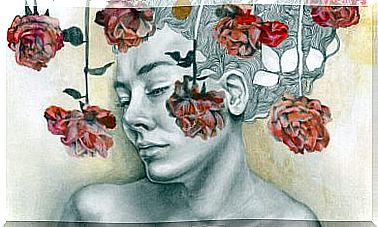We Do Not Become Addicted To Substances, But To What They Cause Us

Drug addiction is a problem that affects more and more people. However, the dependence derived from its use may not be directly related to drugs, but to other processes. Today we will discover that we do not become addicted to substances. Rather, we become addicted to what they provoke.
To shed some light on this blunt statement about what makes us addicted to substances, it is important that we recover one of those experiments with rats that have been carried out and that provide us with so much important information. The one that we will discuss next took place in the 1980s. Its results were quite revealing.

Heroin, cocaine and rats
The experiment that was carried out consisted of putting a rat in a cage. In this there were two bottles: one contained water and the other water with diluted cocaine or heroin. Regardless of which rat was used, the result was the same. She became addicted to the water that contained the drug and consumed it until she died. A hook that we see in many addicted people.
However, we have missed something. The rat is alone in the cage. What if you had more rats around you? This was the next step in this experiment. A cage was created that contained a small park for rats. In it there was food, colored balls and everything necessary for them to have fun. What was the result in this case? The truth is that it was quite revealing.
Many rats did not drink the water containing the heroin or cocaine and those that did drank moderately. In this way, while in all the experiments carried out in which the rat was isolated it ended up dying due to an overdose, in a group and in a fun-filled environment this did not happen.
Isolation and its relationship with drugs
After this experiment something became clear. Rats that were isolated from others and that were in a poor and negative environment of stimuli tended to addiction and, as a consequence, to threaten their own life by not knowing how to moderate the consumption of drugs. The same happens with people. The addiction to the substances does not have to do with them directly, rather it has to do with what generates them.
When we isolate ourselves from others, whether voluntarily or not, our brain begins to produce less myelin. This causes changes in cognitive and emotional behavior, which can lead to depression, anxiety or fear. With this, we feel bad, in addition to that as people we need to bond with others. We are very social beings.
At the moment when this does not happen and we find ourselves isolated for different reasons, we can become addicted to substances in a very easy way. The reason is that drugs increase the secretion of dopamine, a substance that generates well-being.
In addition, the effects of drugs make our brain numb, avoiding thinking, disinhibiting us and allowing us, for a moment, to get away from everything that hurts or affects us. They work as a form of evasion.
Family history and drug use
Despite all that we have explained about why we do not become addicted to substances but to what they cause us, we have to mention an important aspect within addictions such as family history.
If our parents are addicted to substances or if they have a harmful relationship in which they are always on the verge of divorce, it is possible that, as children, we feel out of place, ignored and isolated.
As we now well know, this is an exceptional breeding ground to seek refuge in drugs, since our environment is not that funny cage full of friends as there was in the experiment. Rather, it resembles that of the rat that was alone.
Anything that can affect us emotionally can cause us to look to drugs for a different way of feeling. If, in addition, we surround ourselves with people who also consume them due to problems and difficult situations that have caused them to feel isolated and unhappy, in the end everything becomes a circle from which it will be very difficult to get out.

If the addiction was to blame then … why are there addicts to mobile phones or video games? The reason for our dependence is not in that substance, but in what it makes us feel and that allows us to get away for a moment from everything we have to solve.
In the end, what we become addicted to is nothing more than an escape valve, but the problem will continue to be there waiting for us to do something different to deal with it.









